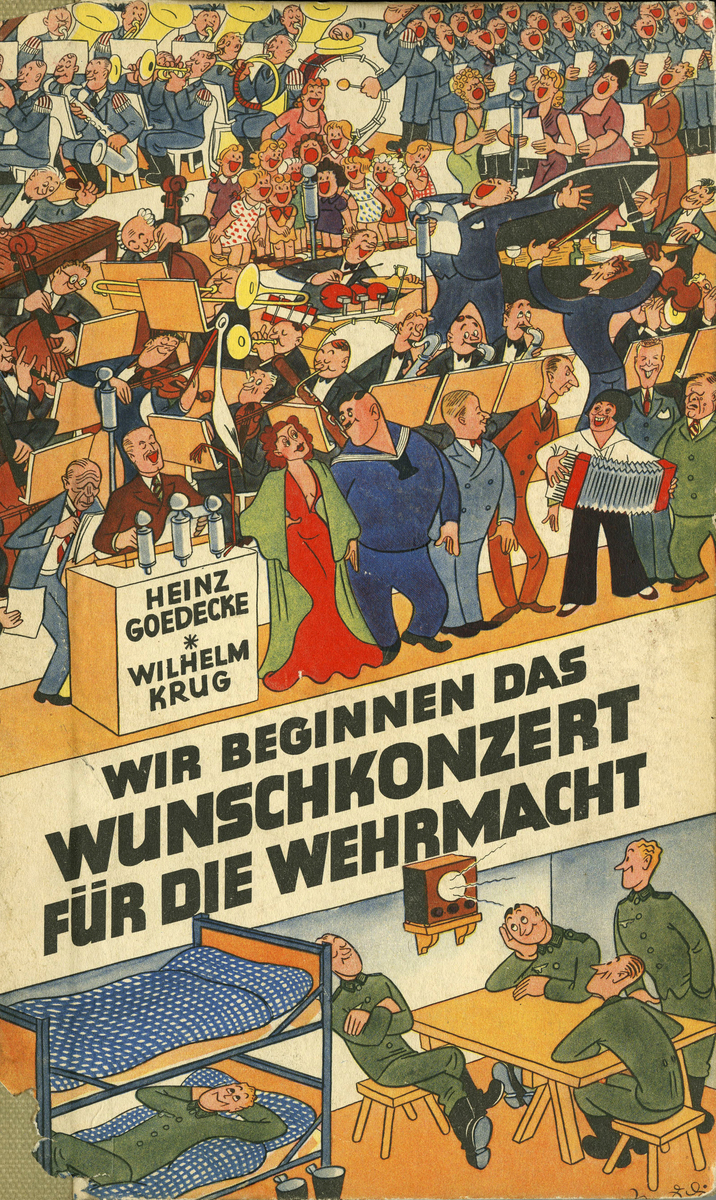Source

Source: Heinz Goedecke, Wilhelm Krug, Wir beginnen das Wunschkonzert für die Wehrmacht. Berlin: Nibelungen Verlag, 1940. Cover image: Manfred Schmidt.
In the early years of the Nazi regime, German radio tended towards programming centered on political speeches and classical music. Public pressure—in the form of complaints or people simply “tuning out”—forced the regime to offer a wider variety of programming, including more varieties of music, narrative dramas, and other entertainment shows. During the war, one very popular show was “Wunschkonzert für die Wehrmacht” (Request Concert for the Military), which broadcast every Sunday after 1940. The show claimed to play music requested by servicemen in the field, and thereby formed a tangible link between the soldiers and the home front. Thus, popular entertainment remained firmly present in the radio programming of Nazi Germany, but this programming nonetheless still served a propagandistic role. These concerts also raised donations for programs like the Winter Relief Fund, which also helped reinforce Germans’ connection to a communal war effort. This cover image for a propaganda publication about the “Wunschkonzert” from 1940 depicts all members of the nation, including a children’s choir, celebrating together, above an image of some soldiers relaxing peacefully. Each group—the revelers and the soldiers—were tied together through mutual appreciation of the musical programming. By participating in this program, Germans were meant to feel a tangible connection to their loved ones on the front or at home. This radio program was so popular that a feature film about a love story based around the radio show was made in 1940. “Wunschkonzert” became the second most commercially successful film production of the Nazi era. By the end of the Second World War, the film had entertained nearly 26 million viewers and grossed 7.6 million Reichsmarks.

Source: Heinz Goedecke, Wilhelm Krug, Wir beginnen das Wunschkonzert für die Wehrmacht. Berlin: Nibelungen Verlag, 1940. Cover image: Manfred Schmidt.